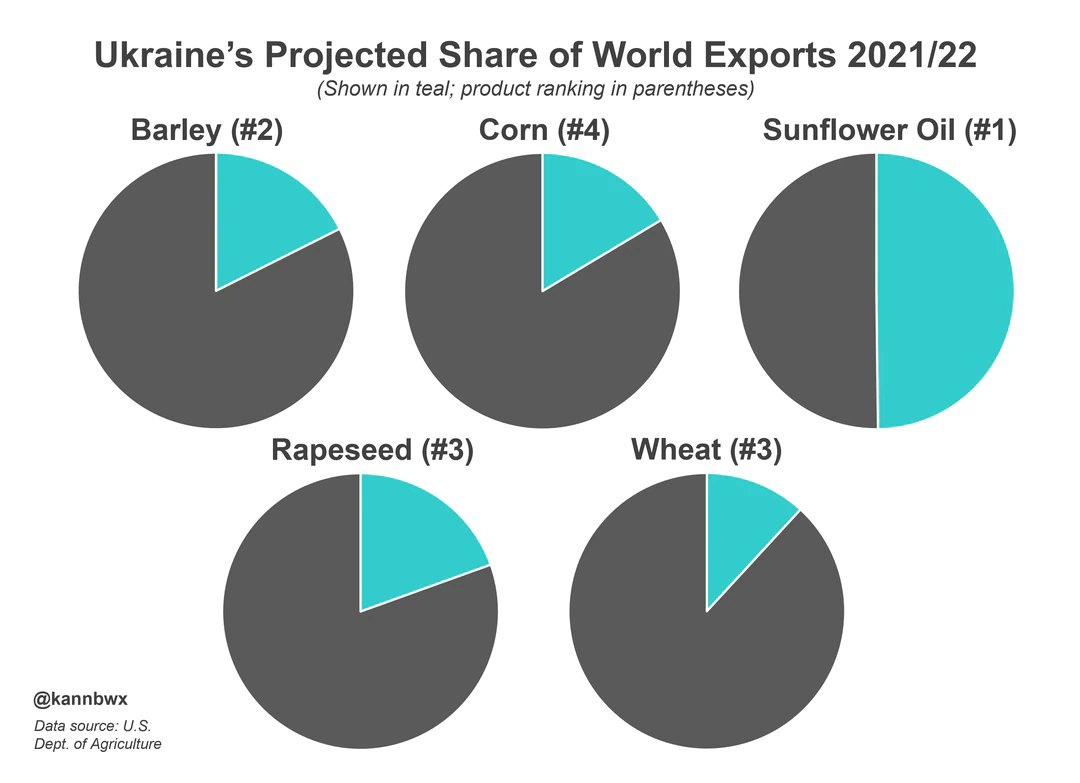Ukraine #2: Catastrophic foreign policy
Analysis of Russia's invasion of Ukraine and Western foreign policy
Russia has invaded Ukraine. Resultantly, Ukraine may soon be obliterated under the strength of the Russian army. There is little hope for them. Analysis must now focus on how we got here, and what subsequent actions should be taken.
Putin is a tyrant. A tyrant with no morals or time for Western liberalism. Global politics is, and always has been, Hobbes’ state of nature1. There is no world police or set of laws. No leviathan dictating decisions or peacekeeping disputes2. Instead, the world is an arena of raw power. The strongest survive in a world of ever increasing military and economic competition.
So why is the West playing the rules of the wrong game?3 The real game is power, not ideals and morality. Freedom and sovereignty have little meaning in Moscow or Beijing.
As stated in a previous article, Ukraine is a Western issue. Of course, Putin’s aggression is key (and in a normative sense appalling). However, normative judgement is pointless in power politics. The West misunderstood the meaning of Ukraine. A borderland state between NATO and Russia will always have heightened significance on the world stage. It isn’t a simplistic sense of national sovereignty or freedom. The West’s high-minded liberalism is hypocritical and short-sighted. The US’ border states of Canda and Mexico are not ‘free’. If either moved to ally with China or Russia, they would consequently find themselves not so ‘free’, due to US retaliation.
Putin was given a green card to invade by the West as its negotiations amounted to a meaningless plea. Sanctions, which Putin has already accounted for, were worthlessly threatened and imposed. Considering Russia’s supply of gas (and the West’s current inflationary pressures), sanctions may now backfire on the West. In addition, the miserable military aid sent to Ukraine only built up a false pretence that they could defend against a superior power. For example: Germany, the world’s 4th largest economy, only mustered a mere 5,000 helmets for Ukraine…
Two approaches would have saved Ukraine. First, as cited earlier, a deal was possible in keeping Ukraine a neutral border state, by blocking its membership of NATO / EU / Russia. A deal that would recognise Ukraine’s geopolitically precarious position, while reconciling its freedom and neutrality. It was not ideal, and blocked their ambitions of EU / NATO membership, but would’ve saved countless lives and kept their freedom. Upon signing the deal, Ukraine could’ve waited for world tensions to thaw, and Russian politics to alter, before attempting further Western assimilation.
A second option was to adequately arm Ukraine. By seriously arming the Ukrainian military, Russia would’ve had to seriously reconsider invasion due to the military and economic cost. Resultantly, this would’ve allowed more time for diplomacy, and slowly increased the power of the Ukrainian military to a point where invasion may have become impossible. Economic stimulus, and logistical aid, could’ve also been key in envisaging how to actually upkeep a modern Western front. Russia realised the West’s military aid was superficial, and that the size of the Ukrainian military allowed (for what looks like) a relatively easy invasion.
In short, the West should’ve fully committed to either diplomacy or military defence. Instead, the West chose neither, while pretending to do both. Putin realised this weakness, and invaded. World politics is a game of power, and the West’s bluff got called.
So, what now? The West has its hands tied. Harsh economic sanctions will be installed, but the feasibility of upholding them is questionable. Putin has invaded at a time of transient Russian strength. Russia owns a large percentage of the world’s natural gas supply, while the West is under intense inflationary pressures (around 7%) and gas shortages. Crashing Russia’s economy will only drive Putin into a formal alliance with China, as well as hurting Western economies with increased inflation4.
Domestically, the Ukrainian invasion will have dramatic ramifications. A refugee crisis will now ensue, with estimates of up to 5.4 million Ukrainians fleeing to Europe. Ukraine’s food trade could cease (See picture), leaving large gaps on supermarket shelves, which would also drive up inflation. Energy bills will further increase, as Russia will inevitably squeeze gas supply in response to Western sanctions.
The situation is bleak. The West have few cards left to play in this crisis, and the cards they do hold are weak. Russia has set a precedent that will now encourage China’s invasion of Taiwan. The West must re-evaluate their strategy, and coordinate a serious realist response to future wars and crisis of global politics. Ukraine won’t be the last. Taiwan will likely be next. Without learning how to deal with Russia (a declining power), the West will fail to deal with its main rival: China.
https://www.britannica.com/topic/state-of-nature-political-theory
The UN has demonstrated how it is absolutely not the world’s peacekeeper, failing in Iraq, Afghanistan and now Ukraine.
By west, the Journal means NATO. More broadly this includes enemies of Russia and China (so AWKUS too), although these aren’t western states. For this article, it will refer to the West in Europe / North America.
In a world of global interdependence, one cannot overlook how targeting a rival’s economy will come back to hurt your own.






